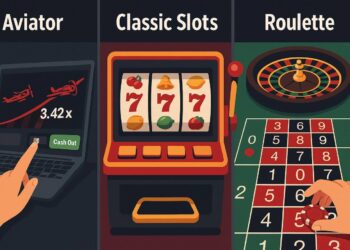Esports has always been a fairly nebulous term, at root a bid to align competitive video gaming as a sport in the same way an email is the digital representation of a physical letter. The origins of the name can be traced to South Korea, when a government sponsored competition utilised the term for a Starcraft tournament it was involved in.
As with many catchy terms – it stuck – and soon it became the de facto name for competitive video gaming the world over. Of course, the thing it refers to predates the term by decades. The earliest official game tournaments for video games goes right back to the digital stone-ages of the 1970s.
However if one looks to the true ancestor of the likes of The International – DOTA 2’s headline tournament, you’d be best served looking to the buzz first person manufacturers built up around the notion of gaming competitions in the early 90s. This was the heyday of the Nintendo World Championships and Sega World.
From the mid 00s, where the scene took on its now permanent moniker in the internet cafes of South Korea, to today, one could say surprisingly little has changed, right down to the games being played. The real shift has been one of popularity, particularly in the west.
Over the course of the 2010s, esports became big news thanks to the rise of platforms like Twitch that gave a global, shareable stage for the community’s triumphs and tribulations to be borne out. By the time we reach the 2020s, the esports boom is upon us and video gaming competition is unquestionably in the mainstream.

This has led to some surprising changes in how esports are defined though, as this expansion in popularity has presided over a convergence between several disparate scenes. It turns out, in the 2020s, esports is arguably about a lot more than just MOBAs and FPS’.
Mind-sports
Mindsports are a curious collection of games that have always hovered close to being considered true sports, but without the requisite athleticism typically believed to constitute a sport. Ultimately, mind-sports are games played at a high – indeed, world class athletic – level, but that rely on the mental prowess of the competitors, rather than sheer brawn.
Of the better known examples one can find everyone’s favourite card game, poker. Historically a perennial classic of off-hours hangouts everywhere, in the 21st century the game has increasingly leaned into its digital iterations, resulting in the early years of the millennium with a ‘boom’ of its own.
Fast forward to today, and today’s tech-savvy texas holdem poker aficionados are more likely to play, and compete, in their favoured pursuit entirely online. This has led to people increasingly moving to encapsulate the title under the broader esports umbrella.

This tendency has only been boosted by the growing number of high profile esports athletes playing more poker on Twitch streams – and vice-versa. When one considers video games that share more than a little DNA with hold ‘em, like Hearthstone, the once high walls between these different sectors look increasingly irrelevant.
Olympic Esports
When you ask someone into the scene what the best examples of esports are today – and thus, the ultimate proving grounds for today’s gaming athletes – you’ll be treated to a familiar list: VALORANT, League of Legends, PUBG Mobile and the like.
But if one looks at the most recent running of the exploratory Esports Olympics, alongside familiar titles like Gran Turismo, one finds some odd additions like Tic Tac Bow (Archery), Zwift (Cycling), Virtual Regatta (Sailing) and Tennis Clash (Tennis).
Now understandably, there’s unlikely to be sim-quality titles out there for each of the Olympics’ recognised sports, but sidestepping the existing esports community in this way has confused and frustrated many players.
There’s signs that this is changing steadily though. Street Fighter VI and NBA2K are examples of new titles joining the listings, but it may be that for some years to come, when people think of esports, two segments of the sporting market across the globe may not experience radically different ideas of what that term even refers to.




























































































